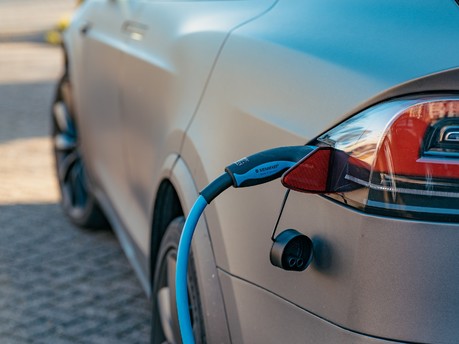When will electric cars pay road tax?
Find out when EVs will be charged road tax in the UK
Historically, one of the perks of owning an electric car, aside from the satisfaction of driving an eco-friendly vehicle and saying goodbye to fuel stations, is that they’ve been exempt from paying road tax. This, however, is set to change in 2025, and many motorists that get from A to B purely on battery power have been left wondering when electric cars, vans and motorcycles will begin to pay road tax.
With electric vehicles accounting for an increasing proportion of the cars on UK roads, this news has, understandably, ruffled a few feathers. Here at Octane Finance, we’ve tracked down what is known about this increase, so that you can read on if your car running costs are set to be affected by the change.
How is road tax set up for electric cars currently?
Road tax, which is officially known as Vehicle Excise Duty (VED), has long been set up to encourage the sale of vehicles that emit lower emissions. This has worked by making those who drive ‘juicier’ cars with bigger engines, and therefore a bigger CO2 footprint, pay higher VED rates than those who drive cars with smaller engines.
This means that, currently, if your car doesn’t produce any emissions because it’s battery-powered, you pay £0 road tax. You do, however, still have to ‘tax’ the car from an admin point of view, you just don’t have to cough up any money.
When will I need to pay road tax on my electric car?
In a budget made by the Chancellor last year, it was stated that, from 2025, EVs will move into the lowest VED bracket, alongside those with conventional internal combustion engines.
This isn’t just for new EVs either; zero-emission vehicles registered since 1st April 2017 will need to pay VED too, and those registered between 2001 and 30th March 2017 will move up from Band A (where road tax is currently £0) into Band B.
Why will owners of electric vehicles need to pay road tax?
In short, it is to equalise all motorists’ tax contributions and make the system fairer, as the popularity of EVs soars in preparation for 2030’s ban on the sale of new petrol and diesel cars.
The Government has insisted that the tax system still encourages the sale of EVs through cheaper first-year VED rates, and the money will continue to be used to support the UK's EV infrastructure, including investment in public charging points. There are also some grant options available, which something we’ll explore shortly.
How much road tax will I have to pay on my electric car?
This will depend on when your electric car was registered. If you’ve been emission-conscious for a while now in a vehicle registered prior to 1st April 2017, instead of paying £0 a year, you’ll pay £20 from 2025. If your vehicle was registered after 1st April 2017, you’ll pay £165 per year.
If you buy a new EV in 2025, you will pay just £10 for the first year, followed by £165 thereafter.
Where this could get expensive for owners of electric cars is the impact of the ‘expensive car supplement’. Right now, anyone who buys a car with a combustion engine that has a list price (including optional extras) of £40,000 must pay an additional £355 from the second year and for a period of five years in total. This currently does not apply to zero-emission vehicles, and this will continue to be the case until 2025.
However, in 2025, the expensive car supplement will be applicable to EVs too, which will see owners paying £520 VED per year during years 2-5 of ownership, which is a particularly significant expense to consider. This, coupled with the price of many EVs, is something you’ll need to think hard about and budget carefully for.
Are there still Government grants for electric cars?
The good news is that yes, Government grants still exist for those pursuing emission-free motoring. We’ve written at length about them here, but to give you an idea of what’s available, these are the grants currently being offered:
- Low-emission vehicles plug-in grant
- EV charge point grant
- Workplace Charging Scheme
While this news may come as a bit of a blow for drivers of electric vehicles, particularly with the cost of living rise showing up in every area of our finances, it’s important to remember that buying an EV is still worth it. This is something we’ve talked about at Octane Finance in this article.

